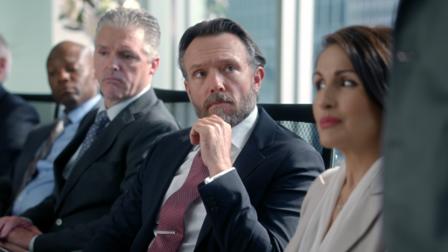QUESTIONS AND ANSWERS ON COACHING
 Coaching is one of the ways to learn to learn effectively. It originated in the 90s of the 20th century. This was the period of the emergence of such communication methods as the Internet, mobile communications, Skype, etc. New communications put forward new requirements for people using them. First of all, the ability to acquire and assimilate new knowledge and skills – that is, to learn. At present, the success of any commercial organization depends on the rate at which new information is applied to current operations, problems, and opportunities.
Coaching is one of the ways to learn to learn effectively. It originated in the 90s of the 20th century. This was the period of the emergence of such communication methods as the Internet, mobile communications, Skype, etc. New communications put forward new requirements for people using them. First of all, the ability to acquire and assimilate new knowledge and skills – that is, to learn. At present, the success of any commercial organization depends on the rate at which new information is applied to current operations, problems, and opportunities.
Most of us were trained in the same standard way – at school, college, institute, university. We learned to read, write, count, solve logical problems, memorize information. In this case, the physiological substrate of such training is the neocortex – the cerebral hemispheres with their cortex. Neocortex is able to learn quickly, in one pass. And the nature of his work is associative. He weaves new knowledge into the already existing information network. It preserves cognitive (cognitive) and mechanical skills. An approximate way to assess the performance of the cerebral cortex is to determine the intelligence quotient and evaluate academic success in academic settings.
American academicians D. Mayer and P. Salovei found that the speed of learning depends on the connection between learning and emotions — emotional intelligence. Emotional intelligence is the ability to perceive, integrate, understand, and reflexively manage other people’s own feelings and feelings. Emotional intelligence “lives” in the subcortical structures of the brain. Including in the limbic system, which is responsible for the formation of emotions. This part of the brain is more phylogenetic than the cerebral cortex. She does not learn like the neocortex. Her way of learning is through repetition of certain behaviors in practice. Coaching allows you to realize those models that a person already uses in their work and see the possibility of creating and applying new models of thinking, perception of reality, behavior and establishing cause-effect relationships.
The main task of coaching is to help a person become what he wants to be.
Coaching is:
– on the part of the coach – managing the process of effective learning and development;
– from the client’s side – there is one more way to precisely define the goals and solve the set tasks.
The difference between coaching and counseling and psychotherapy:
Psychotherapy is help for people in overcoming personal crises, experiencing stressful situations. Accompanied by the diagnosis, analysis, treatment (sometimes even drug). As a rule, psychotherapy is always about the past. Coaching is about the present and the future.
Consulting is the process of attracting a specialist, professional in this area of business, to the task. As a rule, the consultant knows how to solve a specific problem, but cannot give a universal recipe. As a result, the client is doomed to contact the consultant every time other problems appear. Coaching – makes the client more autonomous, competent.
Who is a coach? Should he be a therapist, a businessman? What are the criteria for coaching professionalism? how to understand that to a complete stranger we can entrust our commercial and personal secrets, results?
A coach is, first of all, a person with a high level of self-awareness, aware of how he thinks.
Secondly, a person trained in certain models of thinking.
Thirdly, it is emotionally intelligent, capable of non-judgmental judgment, neutrality.
Fourth, he has a certain life experience (not necessarily, but coaching is one of the few professions in which age is a plus. For example, in Germany only a person over 35 can become a coach). It is good if you have experience in business or professional knowledge and skills in other areas – if the client needs to – you can switch from a coaching mode to a counseling mode, share experiences (in coaching, unlike psychotherapy, this is permissible). But this is the exception rather than the rule.
How to understand if you can trust a coach?
– firstly, on the way that you will find this specialist: it is desirable that it should be recommended to you by people you know, or by the company with which you cooperate;
– secondly – your personal impression at the first meeting (trust your intuition);
– thirdly, if it is a commercial secret and the damage in case of information leakage will be great, you can officially conclude an agreement, including a clause on the legal responsibility of the coach for disclosing information (if, of course, the coach does not frighten him Work for you);
fourth, ask the coach to read the resume and collect any available information about this person;
– and last – any coach is aware that his work is akin to the work of a doctor, priest or psychologist – and is strictly confidential.



